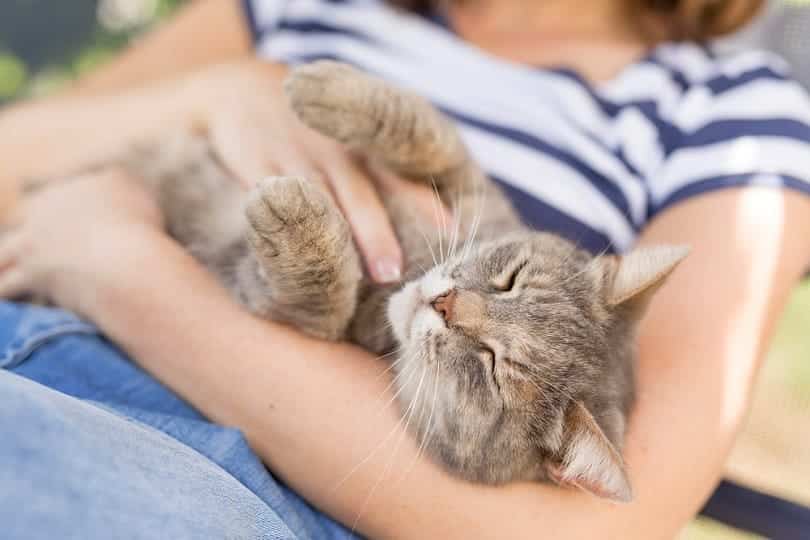After the sad passing of beloved pet cats, many owners will often say that their cats have crossed the Rainbow Bridge. The Rainbow Bridge refers to an afterlife location where pets will wait until they’re reunited with their human owners. Because of its empathetic and thoughtful sentiment, this term has become popular amongst pet owners, and it’s also become a term used to express sympathy towards those who are grieving the passing of their pet cats.
What Is the Rainbow Bridge?
The term “Rainbow Bridge” isn’t just referring to a bridge. Instead, it’s understood to be a location where pets that have passed away have gathered. Most people imagine it to be a meadow with one end of the Rainbow Bridge standing in it. Pets can rest and play in the meadow, and many people are comforted because any pets that suffer from illnesses are no longer sick once they reach the Rainbow Bridge.
The Rainbow Bridge is ultimately a meeting place for pets and their owners. Pets that have passed on before their owners will rest and enjoy time at the Rainbow Bridge. They can play with other pets as they wait to be reunited with their owners. Once their owners have passed away on Earth, they’ll find their way to the Rainbow Bridge. After they’ve found their pets, they can cross the Rainbow Bridge, which has Heaven standing on the other side.

History of the Rainbow Bridge
It’s very likely that the Rainbow Bridge was inspired by Norse mythology. According to legends, a burning rainbow bridge known as the Bifrost connected Earth to Asgard, the realm of the gods. The Rainbow Bridge has a similar function, as it ultimately leads people and their pets to Heaven.
The Rainbow Bridge first started becoming popular after it had been written into a poem. Paul C. Dahm is the most commonly credited author of the poem. He was a grief counselor that had written a poem titled “The Rainbow Bridge” to offer comfort to people grieving for their pets. His poem mentions fields and meadows where pets can play, and there’s plenty of food and water for them. All the pets are warm and comfortable, and they’re no longer sick or suffering.
The Rainbow Bridge was further popularized by Steve and Diane Bodofsky, who wrote a rhyming version of the poem in 1998. The Bodofskys’ version of the poem was also shorter, which made it easier to print on sympathy cards and distribute. The poem became more widely distributed with the rise of the internet, and it’s now a common term used by all kinds of pet owners who have lost a beloved pet.
Although poems about the Rainbow Bridge often allude to dogs, it’s widely accepted that all pets, including cats, are resting and waiting at the Rainbow Bridge. However, since there’s a legend that cats have nine lives, some cat owners may prefer or believe that their cats are living a new and refreshing life as reborn kittens.


Conclusion
The Rainbow Bridge offers comfort to many cat owners whose cats have passed away. No matter what lives their cats have lived, the Rainbow Bridge serves as a reminder that their cats are no longer suffering. It’s a kind sentiment to share with people who are grieving for their pets and a compassionate way to extend comfort and sympathy to someone who has recently lost a beloved pet cat.
Featured Image Credit: Elena Nechiporenko, Shutterstock










